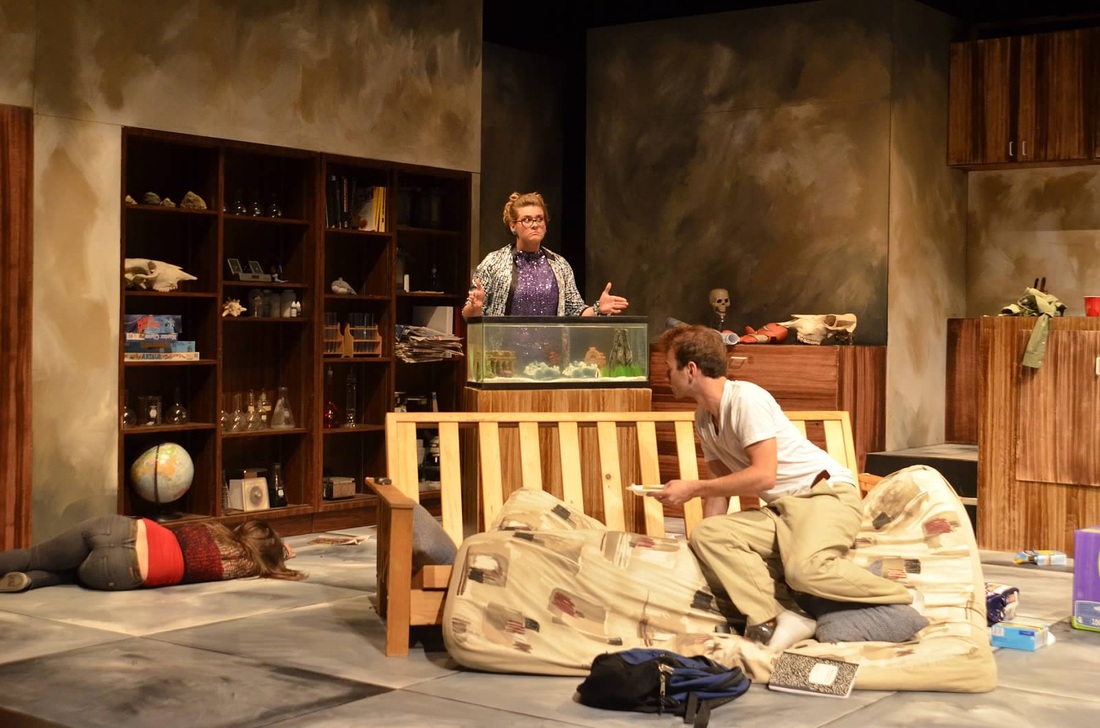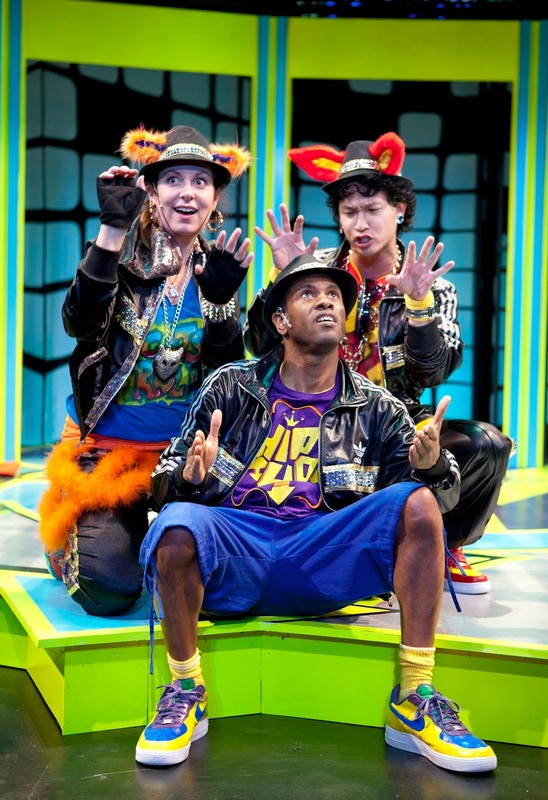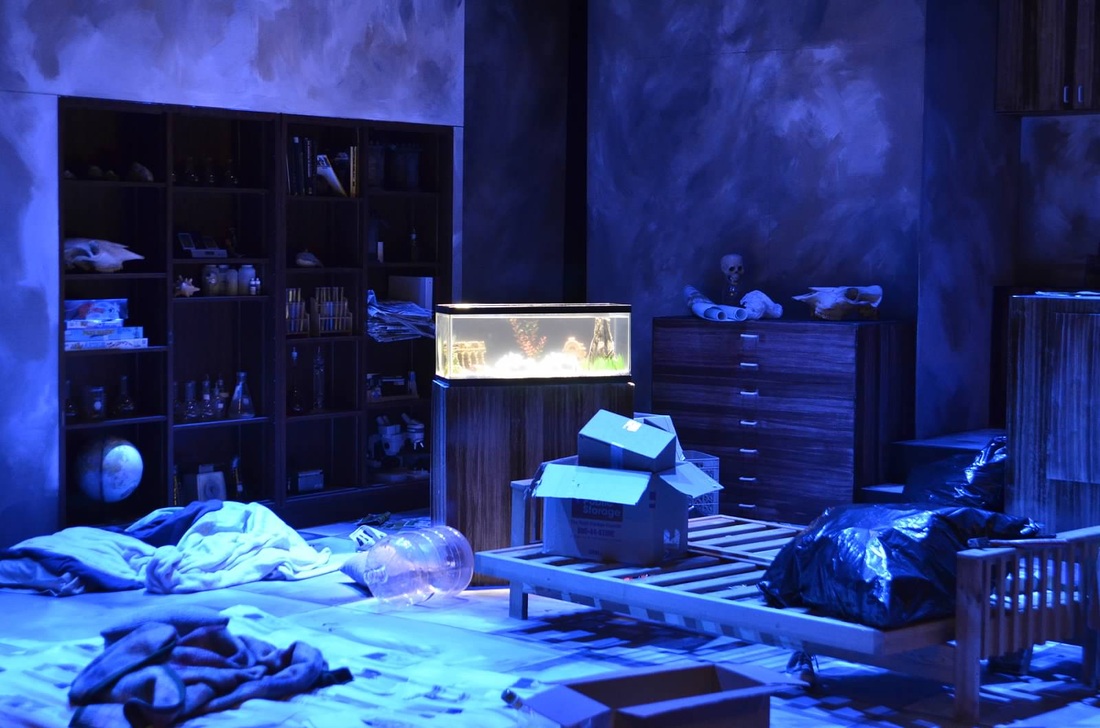|
Jacqueline Lawton: Why did you decide to get into theatre? Was there someone or a particular show that inspired you?
Renana Fox: My grandmother and aunt are both theater professors and successful directors (by which I mean they have consistently gotten paid for their work). With two strong female role models and a cultural heritage of performance I had a lot of reasons to pursue a life in the theater. My mother was both an educator and a professional storyteller and growing up I watched her perform and found her ability to engage an audience somewhat magical. It certainly wasn’t a single moment where I realized that this was the life for me, it was more an accumulation of experiences that made me realize theater was meaningful and transformative. JL: What was the first play that you ever directed? What did you learn from that experience that remains with you today? RF: I actually just finished directing my first full production a few months ago for Artists Initiative. It was called BOOM! by Peter Sinn Nachtrieb and I’ve been in love with the script since I first read it four years ago. I would say most importantly I learned to be confident in my choices. I spent a long time directing readings and assisting people so it’s hard to trust that you’re finally experienced enough to make your own decisions, but it’s also really exciting. JL: What kind of work do you do to pay the bills? How do you balance this work with your work as a director? RF: All kinds of things! I temp at non-profits, I work as a substitute teacher for DCPS and a local daycare center. I work as a teaching artist for local theaters. I babysit. I try to find work that allows for a creative outlet, that makes me happy, and that offers flexibility for the theater job opportunities that come along. I can’t do bartending or retail mainly because I know I have to spend a lot of time waiting for the next theater job, and I need that time to be used for something I find just as fulfilling and meaningful as the art I create. JL: In DC, we have the Capital Fringe Festival, the Intersections Festival, the Source Festival, the Kennedy Center's Page-to-Stage Festival, the Black Theater Festival, and the Hip Hop Theatre Festival. We also have the Mead Lab at Flashpoint Theater Lab Program. Have you participated in any of these? If so, can you speak about your experience? RF: The only one of those festivals I’ve participated in is the Capital Fringe Festival. I worked as a performer and costume designer for several shows and it is a very interesting process. It gives a lot of new artists opportunities, which I think is wonderful. There’s no filter so some work is fantastic and some is terrible but everyone gets to give their art a try. The biggest problem I have found is that the audience draw is not big enough or varied enough to fill all the seats, which makes it hard to break even, much less get your art seen. JL: How many plays have you directed in the DC area? How many of them were written by women? By playwrights of color? How conscious are you selecting plays by women or people of color when deciding your season? RF: I’ve directed three staged readings and one full production since moving to DC two years ago and only one of those was written by a woman. I think it’s incredibly important to support women and people of all ethnic backgrounds in the theater, but equally important for me is to connect with the piece I am going to direct. Finding a new, young, playwright at the same stage in their career as I am, with a similar approach to theater is hard enough. If I can meet someone who is all that and a woman, I feel incredibly lucky, but at this point I’m just happy to work with someone whose work I enjoy and respect. JL: How do you feel the DC theatre community has addressed the issues of race and gender parity? How has this particular issue impacted you and your ability to work? RF: I’m not sure the theatre community has really addressed the issues. I think most theatres still produce shows that are primarily white-men-focused. Then there are theaters that produce shows focusing on African American themes or ‘women’s issues’ but there aren’t a ton of productions (and maybe not enough scripts) that reflect the gender and widely varied backgrounds of audience members. I don’t know that this particular issue has hindered my ability to work, so much as my youth and a tendency among most theaters here to be loyal to past artists and continually hire them back. JL: If you could be direct at any theatre in DC, which would it be and why? RF: My dream is to direct for Woolly Mammoth. I think they do wonderful work to support new artists with unconventional approaches to theater. They take risks and when they fail they fail big, but when they make something good, it is phenomenal. I want to work in an environment that supportive and encouraging of its artists. JL: DC audiences are ... RF: Out there, we just have to find them and let them know DC has great theater that they don’t know about yet. The ones who already know about us are dedicated and loyal, they’re just all friends with each other and have both limited time and limited funds. JL: DC actors and designers are ... RF: Incredibly hard working and dedicated to their art. JL: DC playwrights are .. RF: Provocative and eager to make a difference with their art. JL: DC critics are ... RF: Often too focused on their own opinions as opposed to objectively judging a production based off its artistic value. JL: What advice do you have for an up and coming DC based director or a director who has just moved to D.C.? RF: Make friends and see all the theater you can. JL: What's next for you as a director? Where can we keep up with your work? RF: I’m directing another short piece for an upcoming Inkwell festival in December. After that just keep your eyes peeled for my name on DC Theater Scene and Actors Center.
0 Comments
Your comment will be posted after it is approved.
Leave a Reply. |
My BlogI'm a playwright, dramaturg, and teaching artist. It is here where you'll find my queries and musings on life, theater and the world. My posts advocate for diversity, inclusion, and equity in the American Theatre and updates on my own work. Please enjoy!
Categories
All
Archives
June 2020
Reading List
|



